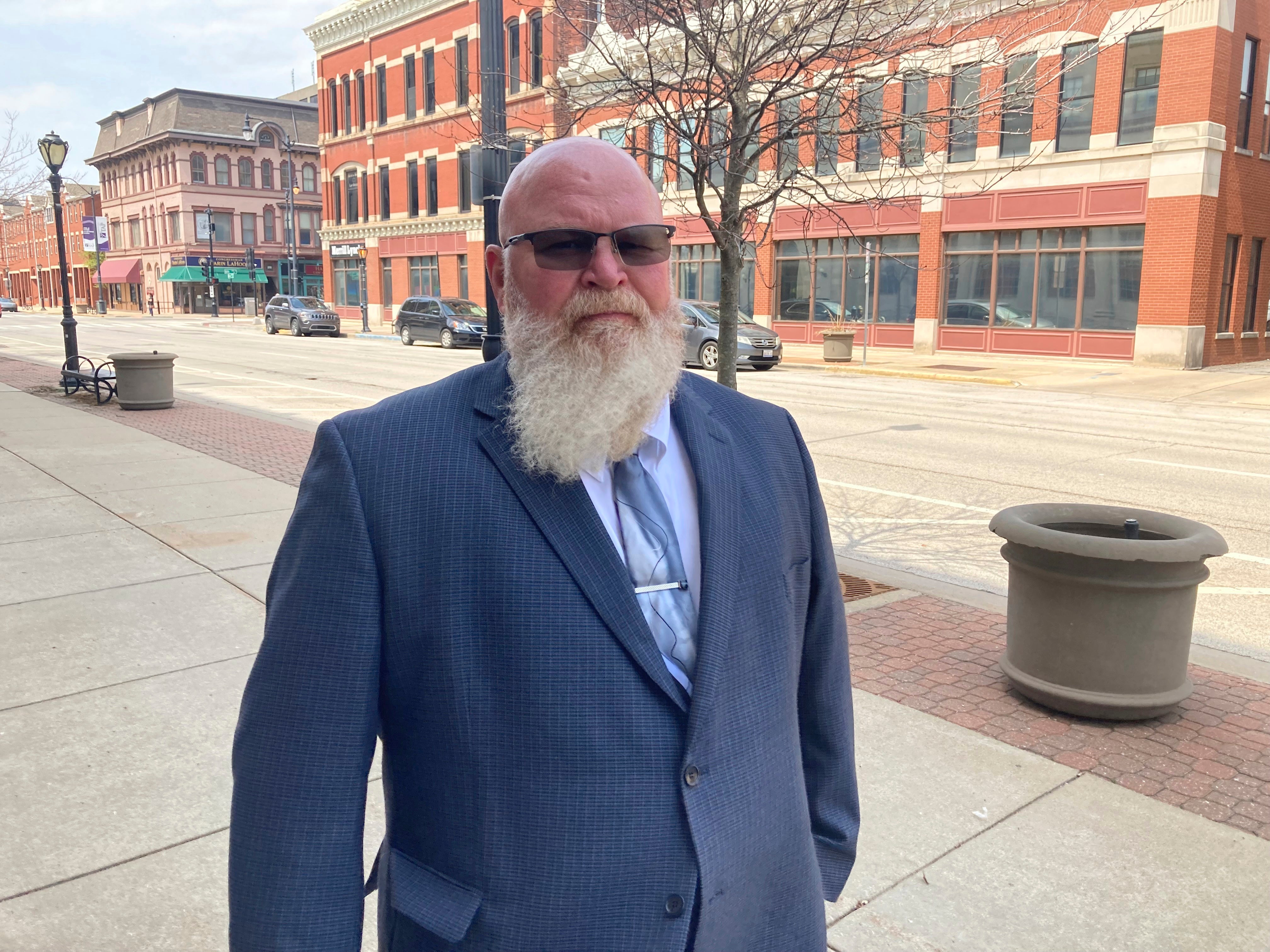2nd ex-prison guard convicted in inmate beating death
A former Illinois prison guard could face life in prison after a jury found him guilty of violating the civil rights of a 65-year-old inmate who died after correctional officers beat him in a lockup more than four years ago

Your support helps us to tell the story
From reproductive rights to climate change to Big Tech, The Independent is on the ground when the story is developing. Whether it's investigating the financials of Elon Musk's pro-Trump PAC or producing our latest documentary, 'The A Word', which shines a light on the American women fighting for reproductive rights, we know how important it is to parse out the facts from the messaging.
At such a critical moment in US history, we need reporters on the ground. Your donation allows us to keep sending journalists to speak to both sides of the story.
The Independent is trusted by Americans across the entire political spectrum. And unlike many other quality news outlets, we choose not to lock Americans out of our reporting and analysis with paywalls. We believe quality journalism should be available to everyone, paid for by those who can afford it.
Your support makes all the difference.A former Illinois prison guard could face life in prison after a jury convicted him Tuesday of violating the civil rights of a 65-year-old inmate who died after correctional officers beat him in a lockup more than four years ago.
The jury of six men and six women deliberated about three hours before returning guilty verdicts on five counts against ex-correctional Lt. Todd Sheffler, 54, of Mendon.
Sheffler is the second ex-guard convicted in the death of Larry Earvin in May 2018. A separate jury convicted Alex Banta, 31, of similar charges in April. That jury could not reach a verdict on Sheffler, so the government tried him again.
“The defense made a statement about the long, cruel arm of government,” assistant U.S. Attorney Eugene Miller said in his closing statement. “Todd Sheffler violated his training, violated the U.S. Constitution and allowed, participated in and covered up the brutal beating of a 65-year-old man, defenseless, a fellow citizen, handcuffed behind his back and lying on the cold, hard concrete floor. He was the long, cruel arm of government."
Like Banta, Sheffler was convicted of depriving Earvin of his civil rights, conspiracy to deprive civil rights, tampering with a witness, destruction or falsification of records and intimidation or force against a witness. The civil rights charges alone carry sentences of as much as life in prison.
Jurors said the panel quickly reached unanimity on verdicts.
“There was overwhelming evidence that he was beaten and that Sheffler was in the room where it happened, whether he did anything or not,” said juror Patricia Finnigan, 60, of Atlanta. “He could have stopped it. He was a supervisor. So there was no question.”
Serving a sentence for theft, Earvin was eligible for parole in four months when he allegedly became belligerent in disobeying a guard's order to return to his cell at Western Illinois Correctional Center in Mount Sterling, 249 miles (400 kilometers) southwest of Chicago.
An officer-in-distress call summoned dozens of guards to Earvin's housing unit, and Banta was among those who began the escort to disciplinary segregation, along with Sgt. Willie Hedden, who was indicted on the same charges as Banta and Sheffler in December 2019.
Sheffler joined en route. Security footage shows Earvin walking on his own into the vestibule of the segregation unit, where there were no cameras. Minutes later, Earvin had to be carried to the segregation cage, nearly unresponsive, bleeding from the head and vomiting. Hedden was among those who testified that the trio kicked, punched and stomped on Earvin, while Banta jumped in the air and came down on Earvin's torso with his knees.
Hedden, 43, pleaded guilty in March 2021 and is hoping for a reduced sentence for testifying against Banta and Sheffler.
Sheffler attorney, William Vig, said he and co-counsel Sara Vig were “obviously very disappointed in the outcome and the (relatively short) time the jury took with the case.” When asked if an appeal is possible, he said they will “examine our client's options."
The Vigs attempted to convince the jury that the punches and kicks Earvin sustained in the housing unit — before Sheffler joined the escort — could have caused his death and that evidence of an assault in the segregation foyer was circumstantial. Finnigan said the jury was unmoved, noting there was no testimony that Earvin was seriously injured before reaching the segregation facility.
That night, Earvin was transported to a hospital and then airlifted to a Springfield trauma center. He died five weeks later. His autopsy revealed 15 rib fractures; at least two dozen abrasions, hemorrhages and lacerations; a torn aorta; and abdominal injuries so severe a portion of his bowel was surgically removed.
___
Follow Political Writer John O’Connor at https://twitter.com/apoconnor
___
This story has been corrected to reflect that the conviction occurred on Tuesday, not Monday.